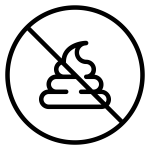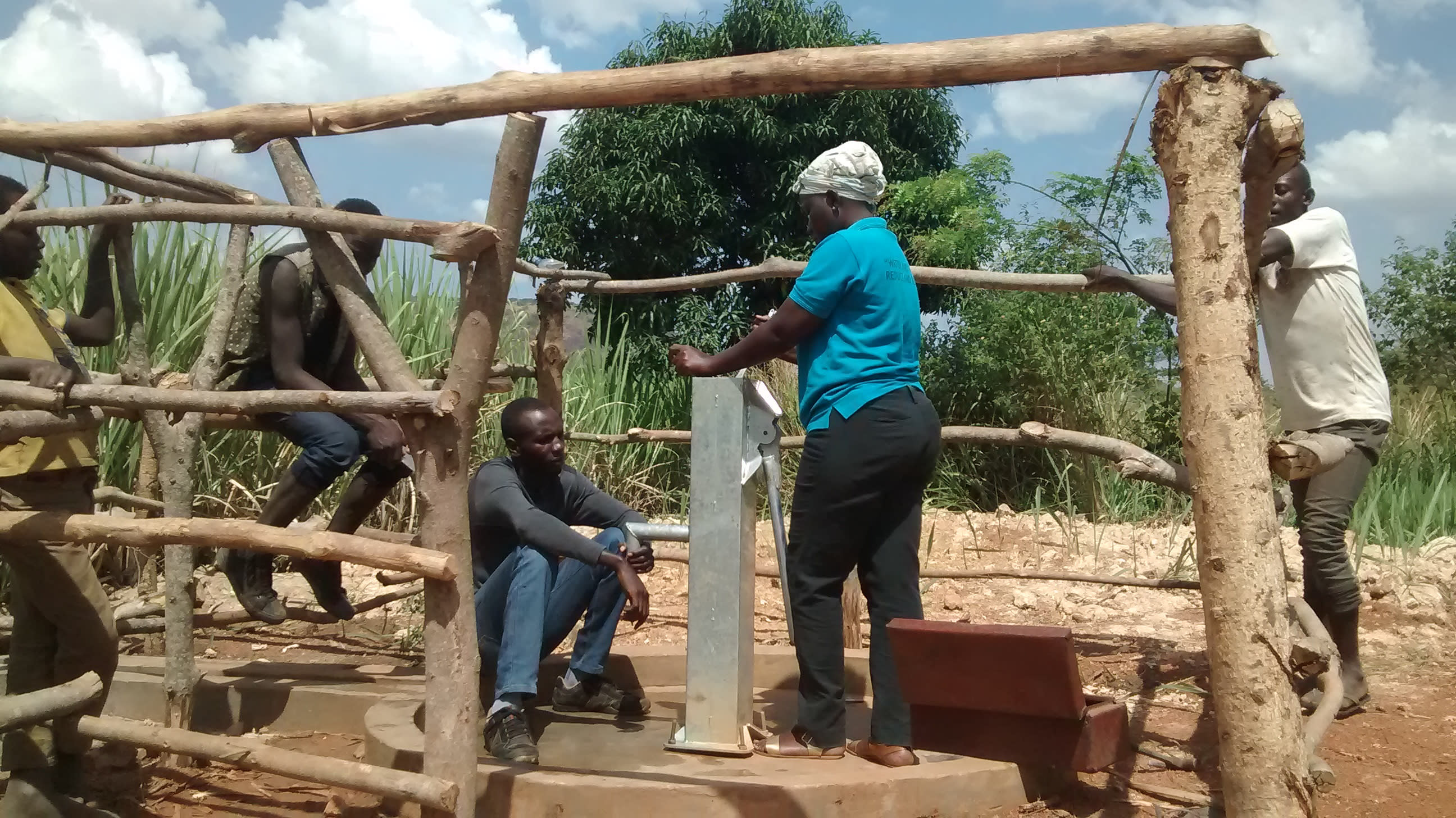Rubani Village is located in Bwijanga between the villages of Rwentale and Rusensya, with a total population of close to 200 households. However, the catchment population for this project is just over 79 households.
(Editor's Note: While this many people may have access on any given day, realistically a single water source can only support a population of 350-500 people. This community would be a good candidate for a second project in the future so adequate water is available. To learn more, click here.)
Like in other neighboring communities, most people wake up at 6am to go and work on their sugarcane plantations. Most of them are "out-growers," meaning that they grow their sugarcane in order to sell to the Kinyara Sugar Factory.
The most taxing things they have to do are weeding the sugarcane and making fire lines, which are meant to protect the crops from burning in the case a fire breaks out. Many of these farms grow things beyond sugarcane, including food crops like maize, beans and cassava.
The women return home from farming all morning until noon to prepare food for their children who go home from school for lunch. Meanwhile, the men go out to the trading center to look for other ways to earn money. Some do business repairing bicycles and motorcycles. Other men remain at home to rest as they get ready to go back to the farm for the evening hours when it's cool again.
Most people retire by 10pm to get enough rest before waking up at 6am the following day.
Water
Most people living in Rubani fetch their water from a large unprotected spring. Plastic containers are dunked under the surface until full. A lot of the spring's water pools to the surface, which is open to contamination from surface runoff, erosion, human and animal activity, and many other sources. Animals and humans alike come to this visibly contaminated source to sate their thirst.
This water is used for irrigating farms in the dry season, watering animals, cleaning, cooking and drinking. After drinking, people suffer from typhoid.
"We drink contaminated water since we share the same water source with animals and the water changes color during the rainy season," Mr. Babyesiza Julius said.
It gets even muddier then!
Sanitation
Less than half of households have a pit latrine. Most of the ones we observed are in poor condition and endanger the user - they are close to collapsing. Many others lack rooftops to protect it from the elements.
We were surprised to find a hand-washing station at one household in the village; it's a rare site in rural Uganda (included in the pictures).
Here's what we're going to do about it:
Training
Training’s main objectives are the use of latrines and observing proper hygiene practices, since these goals are inherently connected to the provision of clean water. Open defecation, water storage in unclean containers and the absence of hand-washing are all possible contaminants of a household water supply. Each participating village must achieve Open Defecation Free status (defined by one latrine per household), prior to the pump installation for a shallow hand-dug well.
This social program includes the assignment of one Community Development Officer (CDO) to each village. The CDO encourages each household to build an ideal homestead that includes: a latrine, hand-washing facility, a separate structure for animals, rubbish pit and drying rack for dishes.
We also implement the Community Led Total Sanitation (CLTS) approach with each of our village partners. This aims to improve the sanitation and hygiene practices and behaviors of a village. During these sessions, village leaders naturally emerge and push the community to realize that current practices of individual households – particularly the practice of open defecation– are not only unhealthy, but affect the entire village. CLTS facilitates a process in which community members realize the negative consequences of their current water, sanitation and hygiene behaviors and are inspired to take action. Group interactions are frequent motivators for individual households to: build latrines, use the latrines and demand that other households do the same.
Hand-Dug Well
The community will participate in excavating and constructing the water source. In the meantime, the aim is that all households own an improved latrine. Many households do not use a latrine but use the bush. Due to open defecation, feces are spread all over the village. This leads to waterborne diseases and contamination of groundwater and surface water. Our aim is that the community is able to live a healthy life free of preventable diseases. We endeavor that at the end of our presence in the community, people will have both access to sustainable, clean water and access to sanitation. We have now organized families to form digging groups for latrine construction, and empowered them with tools to use.
Actual well construction will take four to six weeks if there are no challenges. The well will be lined with bricks and sealing clay, and finished with a Consallen pump.
This project is a part of our shared program with The Water Trust. Our team is pleased to provide the reports for this project (formatted and edited for readability) thanks to the hard work of our friends in Uganda.

 Protected Dug Well
Protected Dug Well
 Rehabilitation Project
Rehabilitation Project




























